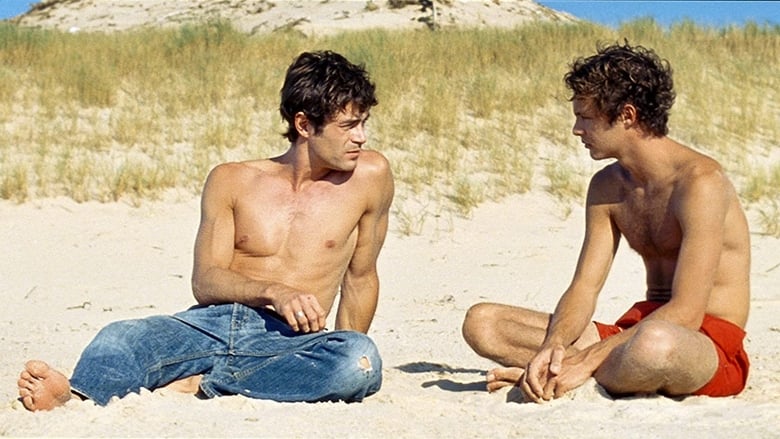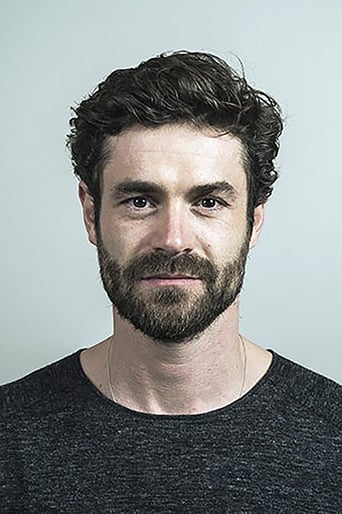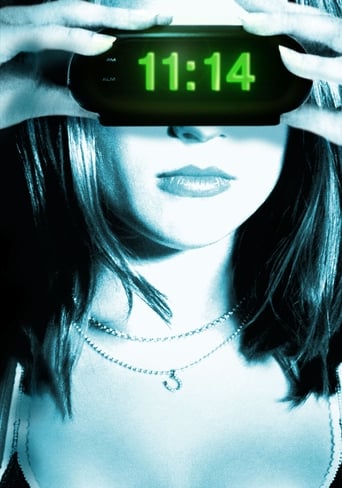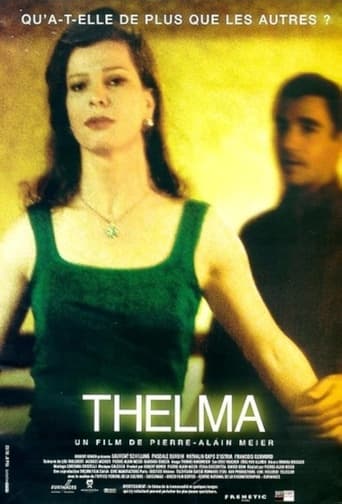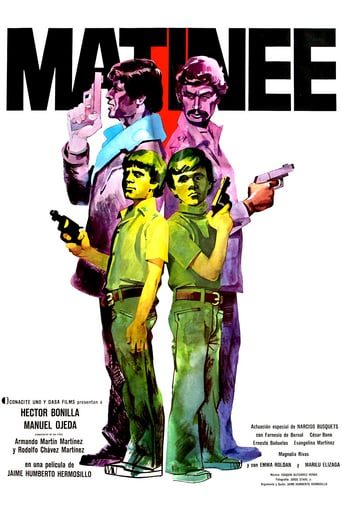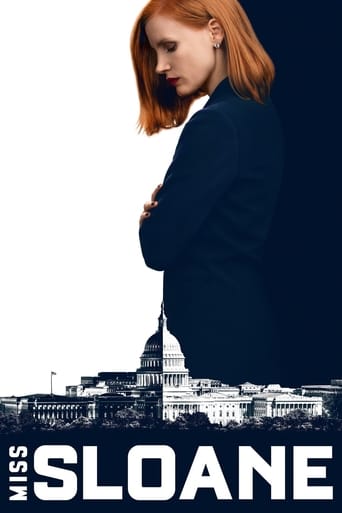Plein sud (2009)
In the summer, 27 year-old Sam drives towards the south of France in his Ford. He meets Matthieu and his sister Léa and takes them along in his apparently aimless journey. Matthieu has a crush on Sam and tries to seduce him. Léa is a beautiful, young, provocative girl who likes men so much that she got pregnant. She soon brings along Jérémie with them. Throughout the trip, they learn to know, fight and love each other. In spite of a blooming relationship with Matthieu, Sam isolates himself because of his secret: he is headed for Spain to find his long-lost mother.
Watch Trailer
Free Trial Channels
Cast


Similar titles
Reviews
Very Cool!!!
Just perfect...
Good start, but then it gets ruined
An absolute waste of money
Without being a driven action movie, this is an everyday story-film made interesting, without getting any of the answers. It's well done, the film work and photography, and there's a lingering underneath which makes you follow trough. If you're not searching for an action flick, that is.Young man Sam is still traumatized and maybe a tiny bit suicidal after seeing his father committing suicide while he was watching, struggling with his mother going insane as a result of her husbands death, following a row in their car. More than 15 years later Sam goes down south, to try to find his mother, together with some friends, without telling them what he's up to. On the way we since some affection between some of the four of them, a girl which has become pregnant and her brother, and another friend they pick up.It's a pleasant summery tale, where we are offered no solution or even a climax. We just almost there. I find that this makes the film interesting. More like real life. It's one of those films making you think, and remembering some of your own summer memories along life's rich pageant. Some might get disappointed by not getting the solutions, and an exact happy ending, but I find liking films which don't give all the answers, but leaves some to each and one of us, and our imagination.I haven't seen any other work of Director Sebastien Lifshitz, and when I realize this is the film of his that has the lowest score, I can't expect him to be nothing less than an interesting director. I'm sure to be on the look for more from his hands. Can't decide if this is a 6 or a 7 out of 10, and then I tend to go down. Still, it's worth watching if you like a story which doesn't give it all away.
As this story begins, we see Lea, a young woman, being examined by her gynecologist, she is pregnant. Her examination, evidently, does not surprise her. Together with her brother, Jeremie, they decide to hitch a ride to one of the Southern beaches. Meeting Sam, who is going South, they find a convivial young man who will help them get there.Sam makes a stop to see his younger brother, something that triggers in him a kind of sadness and despair about an incident he witnessed at a an impressionable age, seeing his father taking his own life while sitting in a car next to his mother. We never learn about the cause of such action as the creator of the film does not care to elaborate on the subject, which is obviously a painful scar in Sam's psyche. Sam, who is evidently gay, likes Jeremie, who obviously cares for him as well. Lea is out of the picture until the trio meet a young man, Mathieu, who picks up the undercurrent he feels is happening between his two companions. Lea, who likes Mathieu begins a romance with the young man among the everything goes among the young crowd at the beach.The mood changes as Sam takes a trip to see his own mother. She has been living in another part of the country. This woman suffered a traumatic shock being next to her husband when he decided to take his life sitting next to her. Sam, obviously older now, comes in to her new life, never expecting she has a man in her life who, for all appearances care about her that is evident. Sam, in a way, feels betrayed.Director Sebastien Lifshitz, whose "Come Undone", and "Wild Side", has done much better before. This effort feels empty in that nothing really is resolved in the issues Mr. Lifshitz and his co-writers, Vincent Poymiro and Stephan Bouquet present to their audience. It is an ambitious project, paling in comparison to the films that came before. The creators seem to be influenced by great French directors of the past, mainly Erich Rommer and Francois Truffaut, without the clear vision of the original models.Yannick Renier is an enigma as the adult Sam. It is clearly he is attracted to Jeremie, but his own trauma gets in his way. His relationship with his mother is also puzzling. Seeing her happy at last, he cannot express anything to her that will bring peace to the way he feels about her, almost making her guilty for what his father decided to do with his life. Nicole Garcia has nothing to do in the film as the mother. Lea Seydoux is another character that is not well developed in the story. Theo Frilet and Pierre Perrier complete appear as Mathieu and Jeremie, respectively. One can only wish Mr. Lifshitz success in his new projects.
.......despite a "seemingly" happy-go-lucky Quartet of early to mid-20s Guys + a Gal heading South to carefree, sunny ocean shores. (BUT, wait....there's plenty of darkness ahead, and let's just say it starts with a bang).(( A HURT SO LARGE....SO DEEP.......you close yourself off.....nearly close yourself down ))Here's my "Brief-Take" on this 2009 production from France (only slight spoilers included): The main plot line of this story stems from an horrific, early childhood, traumatic event.....one which we learn of early on in the film.Added to what you were just told, this tale also gives us: Mental illness....family breakup....out of wedlock pregnancy....suicide....absence of parental love....and a killer Glock----you name it and it's probably here.It takes a little viewing time to realize that this story is, intrinsically, about only one of our Quartet: And Yannick Renier, as darkly brooding and angst ridden Sam works wonders with the part----this is his movie (I'm looking for more of his DVD work). Still, Nicole Garcia, as "Mom" really shines in her small role, particularly at this work's conclusion. This pair's end of film scene together wrenches us, as they talk of their past relationship: deep unhappiness having pervaded it. Yet.....we come to perceive there seems the barest hope of a turnaround----something that is the only thing that might save either one of them.Sex scenes, you're wondering? (thought you'd never ask). Both a heterosexual one, as well as a long-time-getting-there love on the beach tumble between Renier's character and another Quartet member, well played by **Theo Frilet. Though dimly lit, this is still an excitingly amorous scene.Finally, a look at the Closing we're given----a waterside scene which, perhaps, becomes an attempt to wash away years of sadness, disappointment and unhappiness.PS--There is a "Moral" to this tale.....and it's simply: Don't always follow in Dad's Footsteps---or Mom's, either, for that matter.I will be keeping this in my DVD library for every so often rewatching.....but for those of you looking for more "gay content," perhaps a video rental will do.**(for you watchers of small, gay films, you may remember him from 2006's "A Summer Day").
Sebastien Lifshitz's "Plein Sud" opens with the images of obstetric sonography; then we have the face of the movie's only girl, Lea, and a small exchange between her and the doctor informs us that the pregnancy was unwanted, and that she has bile.Cut, with a bouncing rock guitar soundtrack, to Sam's stern face (who occupies the film as its main protagonist) watching Lea dancing to the music in a field; sunny yellow letters invade the screen and the film begins to roll.Why the decision to cut Lea's face to Sam's face? What is the connection between the two the director refers to? Enter Mathieu, Lea's brother, with a camera, a gadget that intervenes in the first stages of the film. Is it that Mathieu stands for the director and his intrusiveness? For we soon learn the reason Sam takes this road trip is some serious stake, some settling of familial accounts since his mother wrote him a letter, telling him she was released from a mental institution, years after they had both witnessed Sam's father's suicide. That Sam is secretive we learn by Mathieu's nosy discovery of a gun in the trunk. From then on the film displays a spiraling of perhaps youthful but inconsistent and obnoxious behavior on the part of the trip's participants (there is also Jeremie, a boy who wants a lift, too), but mostly Lea. I mention obnoxious not so much on terms of behavior, as for the rather pervading humorless attitude of the film: we are shown a bunch of - misfits, perhaps? - armed with the usual amount of righteous bile one expects form a gutsy french film concerned with youth, whose fatal airs seethe with rancorous self-indulgence. Are they any good?The late french theorist Jean Baudrillard wrote in his book "The Fatal Strategies", that if strategies, that is a way for things to escape meaning's dialectic, which bothered them, if strategies are not fatal, then they are fetal. This wordplay, that tries to subvert and radicalize any sense of passive psychology, is, I think, an exemplary sum and paradigm for that kind of french methodology, to put it that way. To cut also a long story short, is the area where the film proposes itself yet stays bafflingly resigned.For it is somewhat obvious that this film is concerned with motherhood, albeit in an oblique way: Lea as a frustrated youth, madly caught in the web of motherhood, acting gratuitously toward her co-travelers, as if slightly cautionary in her tale, when contrasted to that other story of failed motherhood, that is with Sam's mother, but the contrast fails to illuminate any truth, as if content with the ambiguity of a lingering mood at the end.Intersperse with that a jarringly pointless amorous interest between Mathieu and Sam: Lifshitz's flare for celebrating male beauty, is not celebratory here, but irrelevantly gratuitous. Also the persistence, if it is that, of memory giving us jots of Sam's traumatic childhood, cutting here and there, quasi-random as free association perhaps is, but devoid of any poignant dramatic effect: as if the film-maker wanted us to sort of witness a photo-album, taking us with respect (that is also respect towards seething repression) round a person's secret, safeguarding its enigma, away from easy, jolting and intrusive youthfulness, to which Sam's character remains largely apathetic, that's why when he abandons them the only reason this comes as a surprise is why this happens this late in the film. For there is no redeeming sense in the end, unless this comes from the lyrics: "keep my secret with you," the song advises us, but fails to address who "you" is, thus mistaking opaqueness for secrecy. "You" can be Sam, or us, but this is no delicate ambiguity; it lacks meaningful triangulation for a secret always involves three. As it is, any sense of the characters' pithiness, becomes exponentially hollow, and we fail to connect with Sam's journey. Is it that his father has taken his secret with him, and he now, at last, faces this and accepts what being a man is? Despite Yannick Renier's manliness, Sam's manhood is somehow, perhaps literally, edited.It is a pity to witness Lifshitz's regression as a film-maker. His "Wild Side" was unpersuasive, coming after his poignant "Presque Rien": there, his sense of the elliptic was foregrounded in physicality, and physicality in a sense of working (class) consciousness, thus making the passions' inherent marginality resonate with us. If you want to see a film close to "Plein Sud"'s themes, check the exceptional sulfurous pastoral of "Donne-moi la main".

